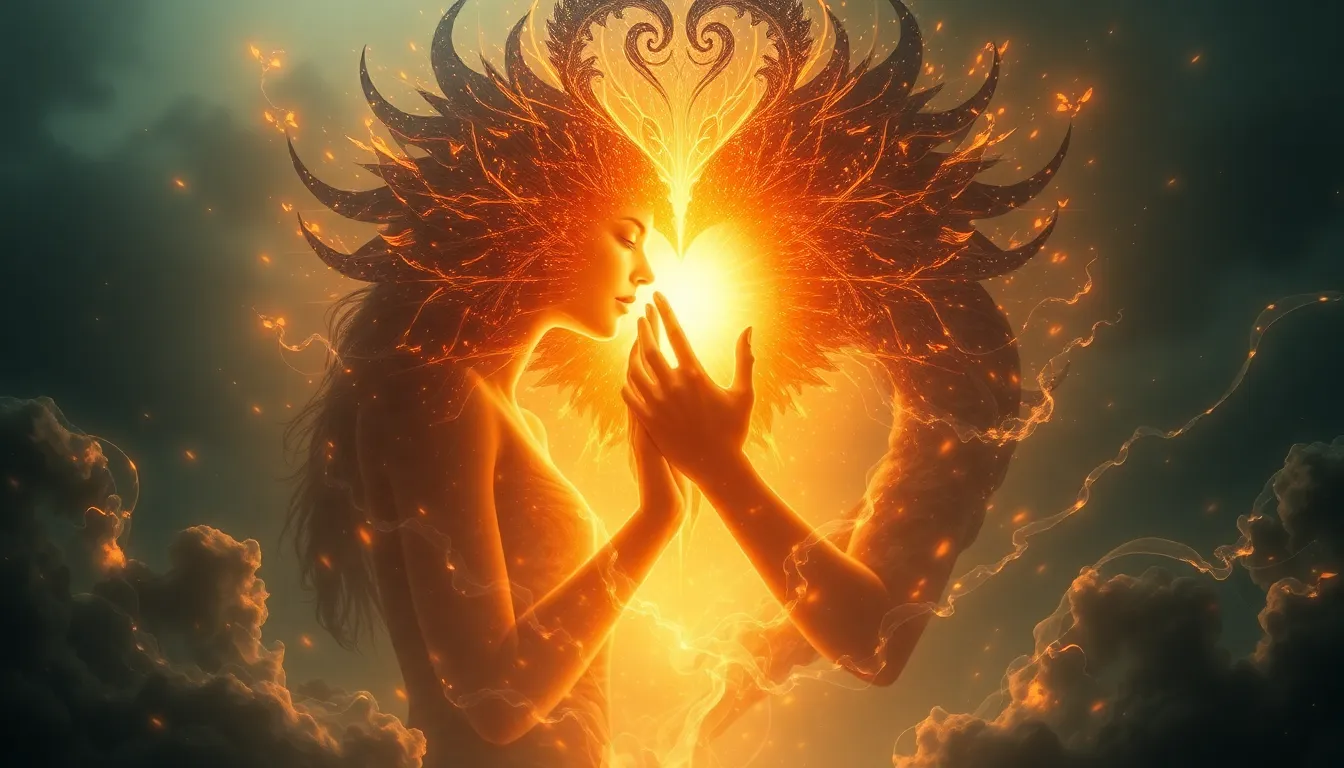The Heart’s Awakening: Transformative Love in Mythical Narratives
Introduction to Mythical Narratives and the Concept of Love
Mythical narratives are stories that convey the beliefs, values, and traditions of cultures through fantastical elements and characters. They often feature gods, supernatural beings, and epic heroes, serving as a bridge between the mundane and the extraordinary. Within these tales, love emerges as a powerful and transformative force, shaping destinies, forging connections, and driving the plot forward.
This article aims to explore the multifaceted nature of love in mythical narratives, examining how it transcends time and culture to influence contemporary understandings of human relationships. By delving into the historical context and archetypal representations of love, we will uncover the profound ways in which love transforms individuals and societies alike.
Historical Context of Love in Mythology
Throughout history, love has played a crucial role in mythology across various cultures. From the love stories of ancient Greece to the romantic epics of India, myths have provided insights into how societies perceive love and its implications.
- Ancient Greece: Myths such as those of Eros and Psyche illustrate the complexities of love, desire, and the trials that lovers face.
- Hindu Mythology: The stories of Radha and Krishna reflect the divine nature of love and devotion.
- African Folklore: Many tales depict the struggles and triumphs of love within communal and familial contexts.
These narratives not only reflect the romantic ideals of their time but also influence societal norms and values surrounding love, marriage, and relationships. As we transition from historical to modern interpretations, it becomes evident that the essence of love remains a central theme in human experience.
Archetypes of Love in Mythical Stories
Common archetypes of love found in mythical narratives resonate deeply with human emotions and experiences. Some of the prevalent archetypes include:
- Forbidden Love: Characters often face societal or familial opposition to their love, leading to tragic consequences.
- Tragic Love: Love that ends in heartbreak or loss, often highlighting the fragility of human connections.
- Divine Love: A love that transcends mortal limitations, often involving gods or celestial beings.
Case studies such as Orpheus and Eurydice and Romeo and Juliet illustrate these archetypes vividly. Orpheus’s journey into the underworld for his beloved Eurydice showcases the lengths one will go for love, while the tragic fate of Romeo and Juliet mirrors the consequences of feuding families and societal expectations.
The Journey of Love: Transformation through Trials
The narrative arc of love often involves trials and challenges that test the strength of the relationship. These adversities serve as catalysts for personal and relational transformation.
In mythology, characters frequently face formidable challenges that lead to growth:
- Hercules: His twelve labors not only prove his strength but also his capacity for love and sacrifice.
- Persephone: Her journey between the underworld and the earth illustrates the cyclical nature of love and loss.
Through these trials, characters evolve, discovering deeper aspects of themselves and their relationships, ultimately leading to a more profound understanding of love.
Divine Interventions and the Role of Fate
In many mythical narratives, the influence of gods and fate plays a significant role in shaping love stories. Divine beings often intervene in mortal affairs, guiding or complicating romantic destinies.
For example:
- Cupid and Psyche: Cupid’s divine love for Psyche transcends challenges imposed by Venus, showcasing the power of love against fate.
- Hades and Persephone: Their relationship illustrates the interplay of love and fate, as Hades abducts Persephone, leading to a bond forged through adversity.
This dichotomy between divine love and mortal love raises questions about free will and destiny, inviting reflection on how love is influenced by forces beyond our control.
Love as a Catalyst for Self-Discovery
Mythical narratives often depict love as a journey of self-discovery. Characters evolve through their experiences of love, leading to personal growth and transformation.
Key transformational moments can be identified in various myths:
- Odysseus: His journey home is not only about returning to Penelope but also about discovering his true self through trials.
- Lady Chatterley’s Lover: In this modern reinterpretation, love leads to profound self-discovery and liberation from societal constraints.
Through love, characters confront their fears, desires, and identities, ultimately emerging as more complete individuals.
Contrasting Love: Sacrifice and Redemption
The duality of love often leads to themes of sacrifice and redemption within mythical narratives. Characters embodying these concepts face choices that reveal the moral complexities of love.
Examples include:
- Persephone and Hades: Their love story embodies themes of sacrifice as Persephone spends half the year in the underworld, symbolizing the balance of light and dark.
- Frodo Baggins: In “The Lord of the Rings,” Frodo’s journey illustrates the sacrifices made for love and friendship, culminating in redemption through selflessness.
These contrasting experiences provide moral lessons about the nature of love, emphasizing that true love often requires sacrifice and understanding.
Cultural Reflections: Love in Mythology Across the Globe
A comparative analysis of love narratives reveals universal themes that transcend cultural boundaries. Myths from various cultures explore similar motifs of love, often reflecting societal values and ideals.
- Greek Mythology: Explores love through tales like that of Orpheus and Eurydice.
- Hindu Mythology: The divine love of Radha and Krishna showcases the spiritual aspects of love.
- African Myths: Many tales emphasize communal love and familial bonds.
These narratives highlight how cultures interpret the transformative power of love, illustrating its significance in human experience.
Modern Interpretations of Mythical Love
The influence of mythology on contemporary literature and media is profound. Modern narratives often reinterpret ancient love stories, reflecting current societal values and beliefs.
Examples of this include:
- Films: Movies like “Titanic” draw on themes of tragic love reminiscent of mythical narratives.
- Books: Novels such as “The Night Circus” explore love intertwined with magic and destiny.
- Art: Contemporary artists often depict mythological love stories, showcasing their enduring relevance.
Through these modern interpretations, the essence of mythical love continues to resonate, inspiring new generations to explore its transformative power.
Conclusion: The Enduring Power of Love in Mythical Narratives
The exploration of love in mythical narratives reveals its timeless and transformative nature. From ancient tales to modern interpretations, love continues to shape human experiences, offering insights into the complexities of relationships and personal growth. As we reflect on these narratives, we recognize that love, in all its forms, remains a driving force in our lives, inspiring us to connect, sacrifice, and ultimately transform.




